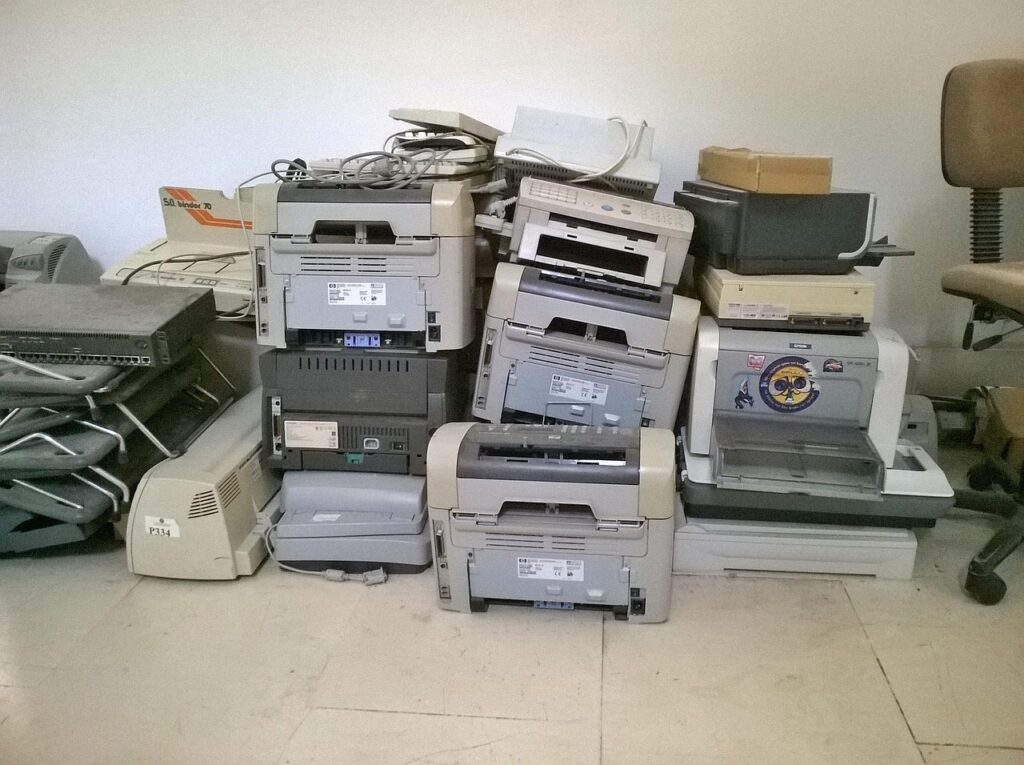Your home is your family’s haven. Your kids live there, your parents, who are probably senior citizens, come and visit you often there. Keeping the whole house safe should be your top priority, and this should include your garage.
The Hidden Threats Lurking in Your Garage
Garages often start out as tidy, practical spaces intended for parking cars or storing essential items. Over time, however, they tend to become dumping grounds for everything from old tools to holiday decorations and forgotten hobby supplies. Many homeowners underestimate the dangers of garage clutter, believing it to be a mere inconvenience rather than a serious hazard. Yet cluttered garages pose numerous risks to health, safety, and even property value. Understanding these dangers is the first step toward taking control of your garage space and transforming it into an organized, efficient area that supports your lifestyle instead of endangering it.
A cluttered garage can lead to accidents, attract pests, and become a breeding ground for mold and mildew. It can even increase the risk of fire and make emergency access nearly impossible. Fortunately, recognizing the dangers and adopting simple but effective strategies can help you reclaim your garage. In this comprehensive guide, we will explore the risks associated with garage clutter and provide practical steps to eliminate them for good.
Physical Safety Hazards
One of the most immediate dangers of garage clutter is the increased risk of physical injury. Items stacked precariously can topple over without warning, creating serious risks for anyone entering the space. Heavy objects stored at awkward angles may fall and cause sprains, fractures, or even more severe injuries.
Loose items scattered across the garage floor also present trip and fall hazards. In a cluttered garage, it becomes difficult to spot obstacles, making it far too easy to trip over a toolbox, a tangled extension cord, or an old bicycle. Slips and falls in garages often result in injuries requiring medical attention and extended recovery time.
Clutter also obstructs clear paths to doors and vehicles. In an emergency situation, such as a fire, cluttered garages can trap people inside or slow their escape. Maintaining clear walkways and proper storage practices is essential to ensuring a safe and functional garage environment.
Increased Fire Risk
Garages commonly house flammable substances like gasoline, paint thinners, motor oil, and other chemicals. When these are stored haphazardly among piles of paper, rags, or other combustible materials, the risk of fire increases dramatically. A single spark from a malfunctioning electrical outlet or a dropped match can ignite the clutter and cause a devastating fire that spreads quickly.
In addition, clutter can prevent firefighters from effectively navigating the garage to extinguish a fire. Fire prevention experts often recommend maintaining a tidy garage space to minimize fire load, which refers to the amount of combustible material in a given area. Keeping flammable materials properly stored and ensuring good ventilation can significantly reduce fire hazards.
Proper storage cabinets, regular inspections, and clear labeling of hazardous materials are simple measures that can prevent a dangerous garage fire from starting in the first place.
Pest Infestations
Garages filled with clutter provide perfect hiding and nesting places for pests such as rodents, insects, and even snakes. Stacks of boxes, piles of clothing, and neglected corners create dark, cozy spots where pests can thrive undetected.
Rodents like mice and rats are notorious for chewing through wires, wood, and insulation, causing significant property damage and potential fire hazards. They can also carry diseases that pose serious health risks to humans and pets.
Insects such as termites, ants, and cockroaches are attracted to damp and cluttered environments. Infestations can quickly spread from the garage into other parts of the home, leading to expensive extermination and repair costs.
Maintaining a clean, organized garage reduces the availability of food, water, and shelter for these unwelcome guests. Regular inspections and proactive pest control measures can help protect your home from infestation.
Exposure to Harmful Chemicals
A cluttered garage often leads to the improper storage of hazardous materials. Paints, pesticides, automotive fluids, and cleaning supplies may be stacked together without consideration for chemical compatibility. Some chemicals can react dangerously when stored too closely, producing toxic fumes or even explosions.
Leaking containers can release harmful substances into the air or absorb into the concrete floor, creating lingering environmental hazards. Poor ventilation exacerbates these dangers, allowing fumes to accumulate to unsafe levels.
Organizing chemicals in designated, ventilated storage units, disposing of old or expired products properly, and keeping incompatible substances separate are essential for maintaining a safe garage environment.
Mold and Mildew Growth
Garages are often more exposed to moisture and temperature fluctuations than the rest of the home. Cluttered spaces, especially those with organic materials like cardboard, fabric, or wood, are prime breeding grounds for mold and mildew.
Mold and mildew can compromise air quality, trigger allergies, and cause respiratory issues for anyone spending time in or near the garage. Over time, mold growth can also deteriorate stored items, damaging valuable possessions beyond repair.
Good ventilation, moisture control, and the reduction of organic clutter are key strategies to prevent mold and mildew in your garage. Using metal or plastic storage containers instead of cardboard boxes can also minimize the risk.
Decreased Property Value
A cluttered garage negatively impacts your home’s overall appearance and value. When potential buyers see a garage overflowing with junk, they may perceive the entire property as poorly maintained. In competitive real estate markets, a clean and organized garage can be a significant selling point, offering attractive additional storage or workspace.
Moreover, a cluttered garage often prevents homeowners from using it for its intended purpose — parking cars. This forces vehicles to be parked outside, exposing them to the elements and potentially reducing their lifespan.
Investing time and effort into cleaning and organizing the garage can substantially increase your home’s curb appeal and resale value.
Psychological Effects of Clutter
Clutter does not just create physical hazards; it also affects mental well-being. Studies have shown that disorganized environments can lead to feelings of stress, anxiety, and even depression. A cluttered garage can be a source of constant frustration and tension for homeowners who must navigate the mess every day.
On the other hand, organized spaces promote feelings of control, accomplishment, and peace of mind. Decluttering your garage can have a transformative effect on your overall mood and quality of life.
Taking control of your garage clutter is not just a practical step; it is an investment in your mental health and happiness.
How to Keep Garage Clutter Away
Understanding the dangers of clutter is only half the battle. Implementing effective organization strategies is essential to maintaining a clean, safe, and functional garage.
The first step is to perform a thorough decluttering session. Sort items into categories: keep, donate, sell, or discard. Be honest about what you truly need and use. Sentimental attachments can be strong, but it is important to prioritize safety and functionality over nostalgia.
Once you have reduced the volume of items, create designated zones within the garage. Establish separate areas for tools, sports equipment, seasonal decorations, automotive supplies, and household overflow. Keeping similar items together makes it easier to find what you need and prevents the accumulation of random piles.
Installing wall-mounted shelving units, ceiling storage racks, and pegboards maximizes vertical space and keeps items off the floor. Clear plastic bins with labels allow you to easily identify contents while protecting them from dust and moisture.
Regular maintenance is crucial to preventing clutter from creeping back in. Set a schedule for seasonal cleanouts, and make a habit of returning items to their designated spots after use.
Smart Storage Solutions
Modern garage organization systems offer countless options for efficient storage. Heavy-duty shelving units provide sturdy support for larger items like bins and power tools. Cabinets with locking doors keep hazardous materials out of reach of children and pets.
Slatwall panels and hooks offer customizable storage for everything from bicycles to garden tools. Overhead storage racks are ideal for seasonal items that are only needed occasionally, such as holiday decorations or camping gear.
Investing in modular storage solutions allows you to adapt your setup as your needs evolve over time. Adjustable shelves and movable hooks provide flexibility and ensure that your garage remains organized even as your storage requirements change.
Professional Help and DIY Options
Some garage clutter problems are overwhelming enough to require professional assistance. Professional organizers specialize in creating functional spaces tailored to your needs and preferences. They can offer valuable insights, design customized layouts, and even manage the entire decluttering and organizing process for you.
For those who prefer a do-it-yourself approach, many online resources provide step-by-step guides, printable checklists, and inspirational ideas for garage makeovers. Home improvement stores often offer free workshops and expert advice on installing storage systems.
Choosing between professional help and DIY methods depends on your budget, available time, and personal preferences. Either way, the goal remains the same: to create a safe, clutter-free garage space that enhances your lifestyle.
Conclusion
The dangers of garage clutter are real and far-reaching, impacting everything from personal safety and property value to mental well-being. Recognizing these risks is the first step toward creating a cleaner, safer, and more functional space.
Taking action to declutter, organize, and maintain your garage requires commitment, but the rewards are well worth the effort. A well-organized garage provides secure storage, improves home safety, supports emergency readiness, and contributes to a more peaceful living environment.
Reclaiming your garage is not just about tidying up a messy space. It is about transforming an overlooked area of your home into a valuable asset that serves and enhances your everyday life. Armed with knowledge, practical strategies, and a little determination, you can keep garage clutter away for good and enjoy the benefits of a safer, more organized home.

